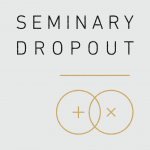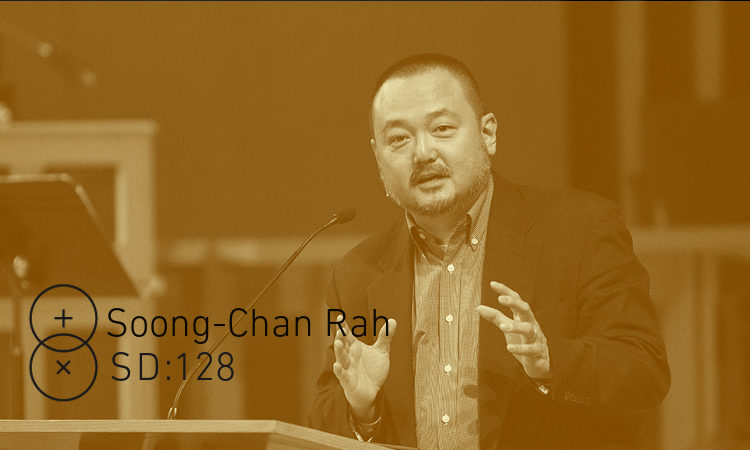
Soong-Chan Rah is the Milton B. Engebretson Associate Professor of Church Growth and Evangelism at North Park Theological Seminary in Chicago, Illinois. He is the author of The Next Evangelicalism: Freeing the Church from Western Cultural Captivity and Many Colors: Cultural Intelligence for a Changing Church, as well as coauthor of Forgive Us: Confessions of a Compromised Faith and contributing author for Growing Healthy Asian American Churches. In addition to serving as founding senior pastor of the multiethnic, urban ministry-focused Cambridge Community Fellowship Church (CCFC), Rah has been a part of four different church-planting efforts and served with InterVarsity Christian Fellowship in Boston. He is a founding member of the Boston Fellowship of Asian-American Ministers. An experienced cross cultural preacher and conference speaker, Rah has addressed thousands around the country at gathering like the 2003 Urbana Student Missions Conference, 2006 Congress on Urban Ministry, 2007 Urban Youth Workers Institute Conference, 2008 CCDA National Conference, 2010 Gordon-Conwell Theological Seminary (GCTS) National Preaching Conference and the 2011 Disciples of Christ General Assembly. He and his wife Sue have two children and live in Chicago.
When Soong-Chan Rah planted an urban church in Cambridge, Massachusetts, his first full sermon series was a six-week exposition of the book of Lamentations. Preaching on an obscure, depressing Old Testament book was probably not the most seeker-sensitive way to launch a church. But it shaped their community with a radically countercultural perspective. The American church avoids lament. But lament is a missing, essential component of Christian faith. Lament recognizes struggles and suffering, that the world is not as it ought to be. Lament challenges the status quo and cries out for justice against existing injustices. Soong-Chan Rah’s prophetic exposition of the book of Lamentations provides a biblical and theological lens for examining the church’s relationship with a suffering world. It critiques our success-centered triumphalism and calls us to repent of our hubris. And it opens up new ways to encounter the other. Hear the prophet’s lament as the necessary corrective for Christianity’s future. A Resonate exposition of the book of Lamentations. –From the Publisher
Interested in advertising on Seminary Dropout? For rates and information contact me at shane@shaneblackshear.com
If you liked this episode then you might also like…
Seminary Dropout 98: Efrem Smith of World Impact Talks About A Diverse Church and #BLACKLIVESMATTER
Subscribe/Rate/Review Seminary Dropout in iTunes
*links to guest books or other products are affiliate links



Missio Alliance Comment Policy
The Missio Alliance Writing Collectives exist as a ministry of writing to resource theological practitioners for mission. From our Leading Voices to our regular Writing Team and those invited to publish with us as Community Voices, we are creating a space for thoughtful engagement of critical issues and questions facing the North American Church in God’s mission. This sort of thoughtful engagement is something that we seek to engender not only in our publishing, but in conversations that unfold as a result in the comment section of our articles.
Unfortunately, because of the relational distance introduced by online communication, “thoughtful engagement” and “comment sections” seldom go hand in hand. At the same time, censorship of comments by those who disagree with points made by authors, whose anger or limited perspective taints their words, or who simply feel the need to express their own opinion on a topic without any meaningful engagement with the article or comment in question can mask an important window into the true state of Christian discourse. As such, Missio Alliance sets forth the following suggestions for those who wish to engage in conversation around our writing:
1. Seek to understand the author’s intent.
If you disagree with something the an author said, consider framing your response as, “I hear you as saying _________. Am I understanding you correctly? If so, here’s why I disagree. _____________.
2. Seek to make your own voice heard.
We deeply desire and value the voice and perspective of our readers. However you may react to an article we publish or a fellow commenter, we encourage you to set forth that reaction is the most constructive way possible. Use your voice and perspective to move conversation forward rather than shut it down.
3. Share your story.
One of our favorite tenants is that “an enemy is someone whose story we haven’t heard.” Very often disagreements and rants are the result of people talking past rather than to one another. Everyone’s perspective is intimately bound up with their own stories – their contexts and experiences. We encourage you to couch your comments in whatever aspect of your own story might help others understand where you are coming from.
In view of those suggestions for shaping conversation on our site and in an effort to curate a hospitable space of open conversation, Missio Alliance may delete comments and/or ban users who show no regard for constructive engagement, especially those whose comments are easily construed as trolling, threatening, or abusive.